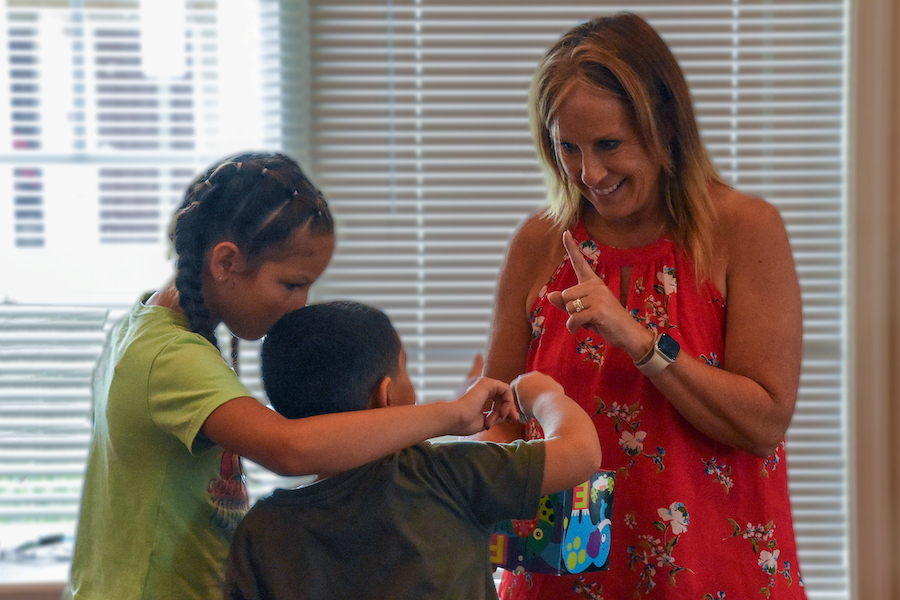
Category: Cooperative Extension

New financial well-being agent bridges the gap for underrepresented communities
September 06, 2023 Written by Katie Young, Digital Content Specialist
When asked what skills individuals wished they’d learned when they were younger, time and again, the answer is financial management. Understanding money, learning how to save and exploring how to make sound financial decisions is an important step toward financial success.
This year, UD Cooperative Extension agent Kelly Sipple is taking on a new role to do just that. Her financial well-being role allows her to address the financial well-being of individuals in Delaware.
Sipple’s background makes her an ideal fit. A former educator with Lake Forest High School and Polytech High School and Adult Education, she taught an array of subjects — business, banking, law, programming, computer literacy and finance. Sipple holds both bachelor’s and master’s degrees from Delaware State University. Her past involvement includes the Business Professionals of America and FFA.
As you might expect, Sipple’s knowledgeable and personable approach to teaching is sure to be a boon in Extension, an organization that employs a community-based strategy. Sipple assesses the needs of a community and adapts educational opportunities and materials for that particular audience. Many of these communities are considered underrepresented, including individuals from low-income urban areas or rural farming backgrounds.

Often, these programs partner with other community-oriented organizations. For example, First State Community Action Agency brought Sipple to an apartment complex with a summer camp for pre-school and elementary-aged children. Here, she combined games, crafts and real-life examples to create engagement. They learned to recognize coins, count change and talked about strategies for creating a small savings. The incentive to learn was strong; participants practiced what they’d learned by winning real money to put into their freshly painted piggy banks!
While some programming focuses on children, the former school teacher is excited to work more closely with young adults and adults, addressing the gaps she sees in support for these groups. One of her goals is to help teens navigate Free Application for Federal Student Aid (FAFSA) and make financial decisions that will benefit them into adulthood.
“I want people to be comfortable with their finances and open with their struggles. I want them to be able to open up and communicate.”
Another is to focus on farmers and farm communities, a population often overlooked by traditional financial well-being programs. These Delawareans are known to deal with high-stress financial situations that can lead to poor outlook and health outcomes. Previous UD Extension programs like Got Your Back and Building Farm and Farm Family Resilience also focused on this population. Resources are available for those looking for assistance.
“Right now, I’m trying to get my feet wet and make connections with people in the state,” said Sipple. “I’m talking to farmers to find out what they’d like to see and looking at topics and curriculums that would benefit them.”
Previously an extension agent for the 4-H Afterschool Program, Sipple transitioned to her new role in May. She is well on her way to leaving her mark on UD Extension’s Health and Well-being Program.
“I want people to be comfortable with their finances and open with their struggles,” explained Sipple. “I want them to be able to open up and communicate.”
Sipple points out that individuals in financial trouble often hide their situation out of embarrassment. She hopes a patient and compassionate approach will encourage people to come out and learn more about managing their finances—whatever their situation may be.
“I want them to know that if they take a class with me, I’ll give them 110%,” Sipple concluded.
